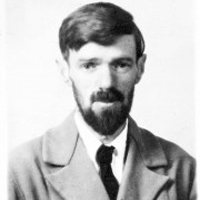The Rocking Horse Winner by Lawrence: Critical Commentary
The Rocking Horse Winner first published in 1926 by D.H. Lawrence is considered to be an example of modernist prose. It is his hatred towards growing consumerism, crass materialism and affection-less parenting style of English people.

David Herbert Lawrence
It presents the ironic tone to moralize on the value of love and dangers of money by using the devices of fairy tale and symbolism.
The protagonist; Paul, attempts hard, though futile, to please his mother and get her love and attention by being lucky. For him, being lucky means to possess much money. So he uses his instinct to predict the name of winning horse in a froth coming horse race. For this he has to ride madly in his wooden rocking horse, and knows the name of the horse that will win in the race. With the help of his maternal uncle, he bets on the horse and starts collecting the money and secretly sends to mother. He cannot find the desired happiness in his mother’s face as she wants more and more. So, he tries harder this time, he wins the bet, but he has to pay a high cost; he dies.
This story criticizes those English people who then equate love with money and luck with happiness. Here the mother stands for the unfulfilled desires and Paul, the son, stands for the desperate search for values in a cash culture. Through the tragic story the writer develops a theme, that is, extreme desire for money and social status ultimately leads to destruction: destruction of relationships and moral values. Lawrence uses symbols and relationships to cater the theme in the story. He uses the symbol of “wooden rocking horse” and “the whispering”.
“The wooden rocking horse” employs the meaning of the supernatural. It is the place where Paul can predict the name of winning horse in the race. It is where he loses himself and gets extraordinary power to foresee the future. Paul is too determined to uplift his social status and he has to find the winners. So he says, “now, take me to where there is luck!” But sadly he is taken to death by extreme pressure both on physical and psychological aspects. “The whispering” in the house “There must be more money!” symbolizes the desires to live in upper class of the society. Paul’s mother always grumbles for not having more money or for being unlucky after getting married. So, Paul feels more pressured to make his mother happy and content. But all his efforts go in vain. His mother never becomes happy because she wants more and more.
Lawrence with the use of dramatic relationships implies the theme of the story. The never ending lust for money and social status ruins the relationships and brings shadows on the love of family members. Paul’s mother has a hunger for money. She thinks she was lucky but after getting married to Paul’s father, she becomes unlucky and she clearly mentions that she is not happy with her husband. With such a family background, Paul wants to be lucky and for him to be lucky means to have money. He wants to get love and attention of mother by being lucky. In this quest, he loses himself. He earns some money for the mother, but destroys his life. In the name of being lucky for mother, the son distances himself from mother eternally. The mother too gives high value for money and status than the love and family bond. The relationships become stronger if there is more money for the mother. All these relationships of father – mother, mother- son clearly depicts the theme that the lust for money and social status destroys love, life and happiness.
